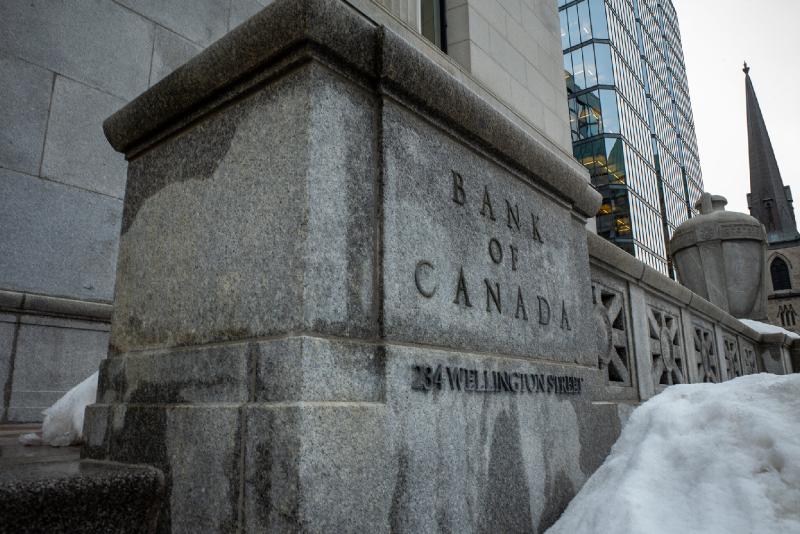Why Canada’s Banks Remain ‘Stable and Resilient’


The country’s financial stability, and the high profitability of its banks at a time when those in the U.S. are in turmoil, comes from strong regulations.
If inflation and rising interest rates weren’t enough to cause anxiety about the global economy, bank failures, or near collapses, have been added to the mix. But once again, Canada’s banking system has come out, so far, looking reassuringly sober and stable.
The current turmoil, of course, began with the collapse of Silicon Valley Bank. While the bank was never a household name, it was the financial force behind many tech start-ups , American and Canadian, and worked with them in unconventional ways. But its collapse, as my colleague Maureen Farrell writes , did not stem from the current turmoil in the tech sector. “It was complete and utter bad risk management,” one investor told her.
The dismal banking news continued through the week. In a fight for its life , Credit Suisse will borrow as much as $54 billion from the Swiss central bank. Eleven of the largest American banks joined together to infuse $30 billion into First Republic Bank, which is based in San Francisco.
Here in Canada, Chrystia Freeland, the finance minister, gathered all of her provincial and territorial counterparts this week, as well as officials from the banking regulator and the Bank of Canada, for a meeting. After it was over, she said in a statement that “The federal government can assure Canadians our financial institutions are stable and resilient.”
There’s little dispute about that. And so far, the Canadian situation is mirroring the one after the 2008 financial collapse that was devastating for banking in the United States. Then, as now, there was no banking crisis in Canada.
To find out what separates Canada and if Canadians’ general smugness about their banking system is actually warranted, I spoke with Cristie Ford, a professor who studies banking regulation at the Peter A. Allard School of Law at the University of British Columbia and Don Drummond, the former chief economist for Toronto-Dominion Bank and, previously, a senior official in the federal Department of Finance.
“We have six large banks in Canada; it’s a highly concentrated industry — some might say it’s oligopolistic,” Professor Ford said, adding that the dominance limits competitive choices for customers. “They all benefit from having a nice base of fee-paying depositors, which allows them to be extremely profitable businesses.”
Collectively, the Big Six banks hold 90 percent of Canada’s deposits, providing them with a steady stream of relatively low-cost money to lend out or invest. That dominance also means that Canadians shopping around find little difference in fees or interest rates.
Strong revenue from these fees and interest, Mr. Drummond told me, creates an “inherent bias to be relatively safe.” The healthy profits generated by their market dominance, he added, made it unnecessary for Canadian bankers to boost earnings through risky ventures like the subprime mortgages that were at the heart of the U.S. crisis in 2008.
Professor Ford isn’t quite as charitable about the nature of the country’s bankers. She recalled being at conferences in 2006 and listening to senior banking executives bitterly complain that their businesses were being held back and becoming uncompetitive globally because Canada would not match the United States on easing its regulatory control.
During the lead-up to the 2008 crisis, the Conservative government proposed a series of steps to deregulate banking. The market turmoil swiftly brought an end to that.
There are costs to Canada’s banking stability. In addition to lack of competition, Professor Ford said that the banks’ play-it-safe approach stifles innovation. Among other things, she noted that the country’s banks remain heavily vested in the oil and gas industry at the same time that the government is trying to advance an ambitious program to reduce climate change.
“Sometimes the Canadian instinct is to really look out for those times when we do better than our giant neighbor to the south and to attribute that to our own virtue,” she said. “But it seems to me that we should really clarify what the Canadian values are that are at stake and think about how best to advance those values; not just say: ‘Well, we’re better than the Americans.’ The question we should really be asking ourselves is: How can Canada do as well as it possibly can on its own terms?”




"There are costs to Canada’s banking stability. In addition to lack of competition ... "
Well Professor Ford, that lack of competition keeps our banks from acting like casinos.
Our banking system in many instances have left the traditional banking system behind in search of bigger profits, called gambling and it isn't house money that they are using.
I was watching a documentary on the 2008 financial crisis and investment banking was not a thing, there were regulations against it, up until the 1950's? I'm guessing here. I think the point of this statement was to say that investment banking may have made a few people really rich but investing in junk bonds and derivatives didn't do justice for the little man
The big 6 Canadian banks have many branches across the country, but they are all just branches of those big 6 banks, which is very different from the 4000+/- separate individual little banks as in the USA.